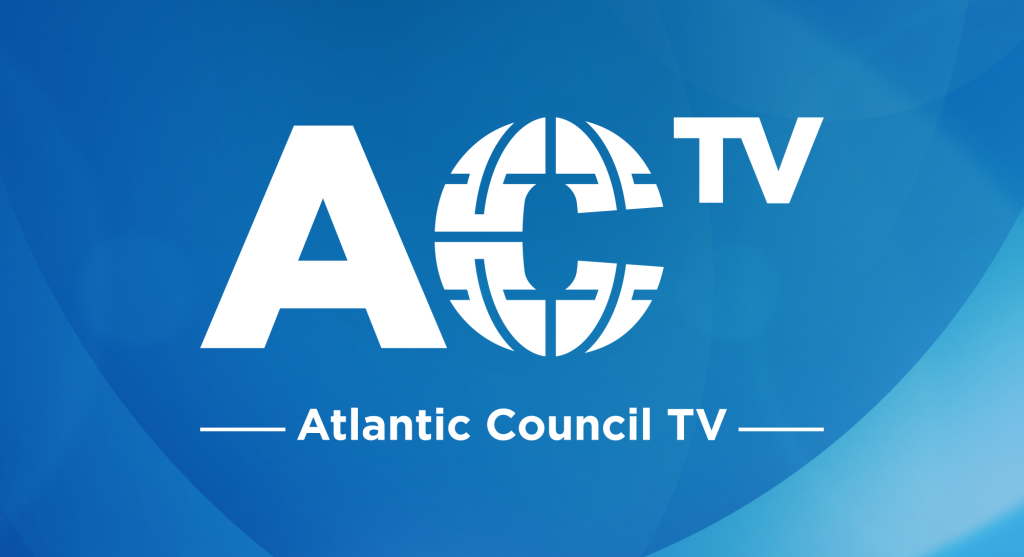On Wednesday, June 4, the Atlantic Council’s Eurasia Center hosted the US-Central Asia Forum, co-sponsored by Foley Hoag LLP and Miras Zhiyenbayev. The forum featured panels on critical minerals and US policy in the region and explored how US engagement with the Central Asian states could help achieve concrete results for prosperity and security.
To open the forum, US Senator Steve Daines (R-MT) sent in remarks, in which he said that Central Asia is “a region of untapped potential that has the opportunity to highlight the importance and impact of US engagement and investment.”
Critical-mineral and rare-earth development was fittingly at the forefront of the discussions, given the attention the Trump administration has devoted to the issue over the past six months. In the first panel of the forum, Geoffrey Pyatt, distinguished fellow at the Atlantic Council’s Global Energy Center and former assistant secretary of state for energy resources, underlined how oil and gas have dominated US relations with the region—especially with Kazakhstan—and how critical minerals can become a similarly significant source of economic partnership. He noted that despite the political transition in Washington, there remains strong bipartisan emphasis on diversifying critical-mineral supply chains.
According to Kazakhstan’s ambassador to the United States, Yerzhan Ashikbayev, Central Asia is well-positioned to address this critical need for the United States. He highlighted Kazakhstan’s rich resource deposits and argued that Kazakhstan has ideal conditions for foreign investment, including “developed midstream processing capabilities, strong infrastructure, low operating costs . . . as well as trusted and predictable strategic partnership.”
Uzbekistan’s deputy chief of mission in Washington, Alisher Akhmedov, said critical minerals development is the “main pillar” of the US-Uzbekistan partnership, arguing that the economic modernization, supply chain resilience, and connectivity that could come from minerals cooperation are “win-win” situations for the United States and Uzbekistan.
The second panel looked at US policy in Central Asia under the Trump administration, as Central Asian states enter a period of new economic and foreign policy dynamism, shifting how they view themselves and their partners.
James Carafano, E.W. Richardson fellow and senior counselor to the president at the Heritage Foundation, pointed out how an intensely pragmatic US administration focused on clear wins should see a wealth of opportunity in the region, whether it be through mining and energy or other avenues for cooperation.
But US policy should not end at resource development, panelists noted, as counterterrorism support focused on the growing ISIS-K threat and countering malign Chinese influence, in addition to border security, all align with major priorities of the Trump administration and can be tackled in partnership with Central Asian countries.
For a perspective from Central Asia, Miras Zhiyenbayev, advisor to the chairman of the board for international affairs and initiatives at Maqsut Narikbayev University, emphasized that today,“the world is open for Central Asia and Central Asia is open for the world.” While young people in the region seek opportunities and education all over the world, he said, the United States has the chance now to show up in the region through high-level visits and other engagement to connect with the Central Asian states and show political will for deeper engagement.
Throughout the forum, panelists agreed that the United States needs to be more active in Central Asia to better serve US interests. Moderator Andrew D’Anieri, the Eurasia Center’s associate director, laid out the main takeaways for the United States: show up in Central Asia, make critical raw materials projects economically viable build a more dynamic Central Asia policy (including by repealing the Jackson-Vanik amendment), and leverage the Trump administration’s transactional foreign policy for tangible projects and investments.
While the White House has its hands full focusing on other hotspots around the world, Central Asia remains a region with willing partners and a wealth of clear opportunities to advance US interests.
join the conversation
Send our speakers a question—it may be featured during our event.
Speakers
Agenda
9:45–10:00 a.m. ET | Keynote remarks
FEATURING
The Hon. Steve Daines (PRE-RECORDED)
United States Senator (R-MT)
10:00–11:00 a.m. ET | Powering tomorrow today: How to maximize Central Asia’s critical minerals potential
FEATURING
Alisher Akhmedov
Deputy Chief of Mission
Embassy of Uzbekistan to the United States
H.E. Yerzhan Ashikbayev
Ambassador of the Republic of Kazakhstan to the United States
Reed Blakemore
Director, Research and Programs, Global Energy Center
Atlantic Council
Amb. Geoffrey Pyatt
Distinguished Fellow, Global Energy Center
Atlantic Council
Joseph Klingler
Partner
International Litigation & Arbitration Department, Foley Hoag LLP
MODERATOR
Andrew D’Anieri
Associate Director, Eurasia Center
Atlantic Council
11:00–11:30 a.m. ET | Coffee and networking break
Coffee and networking break
11:30 a.m.–12:30 p.m. ET | US policy toward a more dynamic Central Asia
FEATURING
James Carafano
Senior Counselor to the President and E.W. Richardson Fellow
Heritage Foundation
Lisa Curtis
Senior Fellow and Director, Indo-Pacific Security Program
Center for a New American Security
Amb. Tatiana Gfoeller (VIRTUAL)
Nonresident Senior Fellow, Eurasia Center
Atlantic Council;
Former US Ambassador to Kyrgyzstan
Miras Zhiyenbayev
Advisor to the Chairman of the Board for International Affairs and Initiatives
Maqsut Narikbayev University
MODERATOR
Amb. Daniel Rosenblum
Former US Ambassador to Kazakhstan and Uzbekistan
12:30–12:35 p.m. ET | Closing remarks
FEATURING
Andrew D’Anieri
Associate Director, Eurasia Center
Atlantic Council
12:35–1:30 p.m. ET | Networking lunch
Networking lunch
Explore the program

The Eurasia Center’s mission is to promote policies that strengthen stability, democratic values, and prosperity in Eurasia, from Eastern Europe in the West to the Caucasus, Russia, and Central Asia in the East.
Atlantic Council TV

Watch this event and more content on ACTV
Follow the conversations shaping our world. Available on all major platforms.